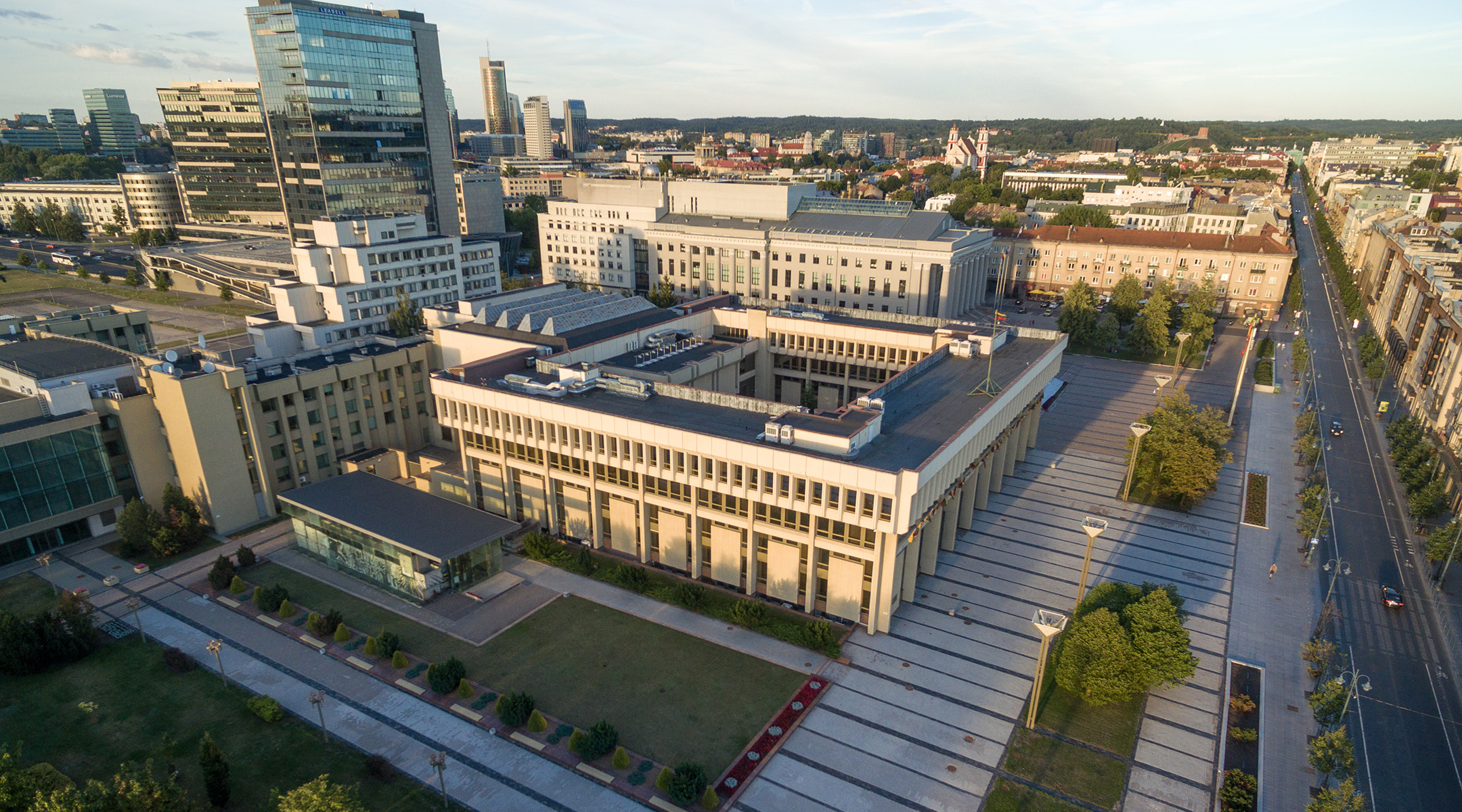Lithuania passes law allocating nearly $40 million for Holocaust survivors
The bill passed last week with an overwhelming majority,

A view of the Lithuanian parliament and national library in Vilnius. (Mindaugas Dulinskas/Getty Images)
(JTA) — Lithuania’s parliament passed a law this week to set aside over 37 million euros ($38 million) as restitution for Holocaust survivors and their heirs.
Ingrida Šimonytė, Lithuania’s prime minister, introduced the bill in the Seimas, Lithuania’s national legislature in Vilnius, on Nov. 15, proposing to nearly double the money the government had already set aside for restitution claims in a country where 90% of its Jews were killed in the Holocaust. Today only 5,000 Jews remain in the country.
The World Jewish Restitution Organization called it “an important step to providing a measure of justice to Lithuanian Holocaust survivors and their families for the horrors they suffered during World War II and its aftermath.”
The bill passed last week with an overwhelming majority, with 72 parliamentarians in favor, six against and two abstaining.
“No one can bring the lost lives back and revive the communities once we had. However, the approach the government shows in terms of restitution for the Lithuanian Jewish community devastated during the Holocaust is proper and is welcomed by our community,” said Fania Kukliansky, president of the Lithuanian Jewish Community, according to the Baltic News Network.
Over a decade ago, the parliament passed legislation to allocate 36 million euros, then worth about $72 million, for a “Good Will Foundation” that funds projects to benefit the country’s Jewish population. The money was considered restitution for communal property seized from Lithuania’s Jewish community under the Nazi occupation.
The present bill would allow survivors and their heirs to apply for restitution for personal property as well, while continuing to fund the Good Will Foundation.
“This is also a moral debt that should be acknowledged and, as far as possible, not 100%, resolved,” Šimonytė said.
Lithuania has a checkered history when it comes to Holocaust remembrance. The Nazi’s Lithuanian collaborators under German occupation were involved in many atrocities, including the massacres at Paneriai, a present-day suburb of Vilnius, where 70,000 Jews were killed between 1941 and 1944. Lithuanian battalions performed guard duty and organized deportations at the Majdanek death camp in Poland and the Warsaw Ghetto.
Jewish leaders objected when, in 2020, Lithuanian lawmakers considered a law that would have declared that neither Lithuania nor its leaders could be blamed for participating in the Holocaust because the country was occupied. Amid the rise in nationalism across Eastern Europe, streets, schools and monuments have been named for Lithuanian collaborators.
Despite the overwhelming vote in the Seimas, not everyone supported the bill.
“Our faction did not support it. We believe that the issue is resolved. Neither the motives nor the real reasons for it are understood,” said former Lithuanian Prime Minister Saulius Skvernelis, who is now chairman of the Democratic Union For Lithuania Party and voted against the bill.
“If we’d apply the same approach, then the story of compensation would be endless” he added, pointing to non-Jewish Lithuanians who lost property during both the Nazi and Soviet occupations.
“If every government starts believing it has an exclusive right to pass decisions on restitution, then, to follow the logic, every new government can start thinking that it has a right to compensate also all the Lithuanian nationals who lost their property in the 1940s and who haven’t seen any compensation,” Skvernelis said.
The bill’s passage was welcomed by the United States embassy in Lithuania.
“The passing of this legislation is an important step in recognizing the tragedy of the Holocaust in Lithuania,” Robert Gilchrist, the U.S. ambassador to Lithuania, said in a statement. “The United States Government strongly welcomes and endorses the Lithuanian government’s proposal to address longstanding issues of restitution for the Lithuanian Jewish community devastated during the Holocaust.”
This article originally appeared on JTA.org.
A message from our Publisher & CEO Rachel Fishman Feddersen

I hope you appreciated this article. Before you go, I’d like to ask you to please support the Forward’s award-winning, nonprofit journalism so that we can be prepared for whatever news 2025 brings.
At a time when other newsrooms are closing or cutting back, the Forward has removed its paywall and invested additional resources to report on the ground from Israel and around the U.S. on the impact of the war, rising antisemitism and polarized discourse.
Readers like you make it all possible. Support our work by becoming a Forward Member and connect with our journalism and your community.
— Rachel Fishman Feddersen, Publisher and CEO

























